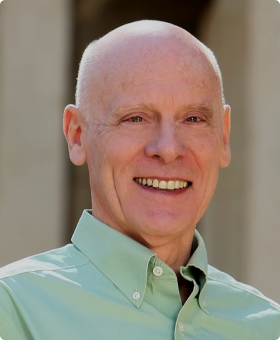This article was originally authored by Dr. Hugh Ross and is republished here with permission from Reasons to Believe , a ministry dedicated to integrating science and faith. All rights reserved by the original publisher. To explore more resources, visit their website Reasons to Believe.
Hugh Ross debates Peter Atkins on science and faith
Of all the video-recorded debates I’ve done with atheist scientists, the one that’s been viewed the most is the one I did with former Oxford University chemistry professor Peter Atkins. As of August 26, 2022, more than 400,000 people had viewed the debate on various YouTube channels.
Who is Peter Atkins?
Atkins is a physical chemist and the author or coauthor of nine undergraduate chemistry textbooks.[1] My colleague Fazale Rana had Atkins’s books assigned for his chemistry classes. Atkins is one of Britain’s best-known atheists. In the British newspaper The Guardian, Atkins’s atheism was described as “more hardline than Richard Dawkins.”[2] When asked during the prep before our debate if there were any scientists, besides himself, that he respected, Atkins responded that there was only one—Richard Dawkins.
Atkins’s background in secular thought
Atkins was the first senior member of the Oxford University Secular Society. He is a distinguished supporter of Humanists UK (formerly the British Humanist Association) and an honorary associate of the National Secular Society. He serves on the advisory board of The Reason Project, which is led by Sam Harris.
The debate: Where did the laws of nature come from?
The debate took place in London on Premier’s Unbelievable? radio and television show on June 1, 2018. Atkins had just released his book, Conjuring the Universe: The Origins of the Laws of Nature. Hence, the topic of the debate was “Where Did the Laws of Nature Come From?” The moderator was Unbelievable? host Justin Brierley.
Main debate themes
We covered many topics in addition to the origin of the laws of physics. The main questions focused on whether the God of the Bible exists, the intellectual integrity of one’s worldview, and whether belief systems can be tested scientifically. Toward the end of the debate, Brierley asked both of us if we could think of any possible evidence that would cause us to change our minds about the existence or nonexistence of God. The debate then took a dramatic turn—but there were several other powerful moments throughout.
Reviews and reactions to the debate
Several reviews have been written from a Christian perspective. Physician and apologist Erik Strandness wrote one of the best analyses for Patheos.[3] I haven’t found a written review from an atheistic perspective, though Joshua Rasmussen of Worldview Design posted a 10-minute video commentary where he complimented Atkins for his courage and questioned the falsifiability criterion.[4]
Watch the full debate online
While reviews can give you a general sense of what was discussed, the best option is to watch the full debate (1 hour and 4 minutes) in its unedited form: Hugh Ross vs. Peter Atkins: Debating the Origins of the Laws of Nature. I encourage readers to share the recording and discuss the debate’s implications with friends or small groups.
Endnotes
- The most often used ones are Physical Chemistry, Shriver and Atkins’ Inorganic Chemistry, and Molecular Quantum Mechanics.↑
- Colin Tudge, “The Art of the Soluble,” The Guardian, London, Society section (December 8, 2007).↑
- Erik Strandness, “When Atheism Becomes Unfalsifiable: Peter Atkins and the Problem of Evidence,” Patheos (November 6, 2020).↑
- Joshua L. Rasmussen, “How to Debate Courageously: A Note on Atkins vs. Ross,” Worldview Design (July 11, 2019).↑
Go Deeper

Dr. Hugh Ross
Hugh Ross is the founder and senior scholar of Reasons to Believe, an organization dedicated to communicating the compatibility of science and the Christian faith. While in college, Hugh committed his life to Jesus Christ after his study of cosmology convinced him of the existence of a Creator, specifically the God of the Bible. Hugh holds a degree in physics from the University of British Columbia and a PhD in astronomy from the University of Toronto. After five years on the Caltech faculty, he transitioned to full-time ministry and still serves on the pastoral team at Christ Church Sierra Madre. His writings include journal and magazine articles, hundreds of blogs, and numerous books-Why the Universe Is the Way It Is, Improbable Planet, Designed to the Core, and Rescuing Inerrancy, among others. He has spoken on hundreds of university campuses as well as at conferences and churches around the world and participates in the weekly Stars, Cells, and God podcast.


.webp)


Leave a comment